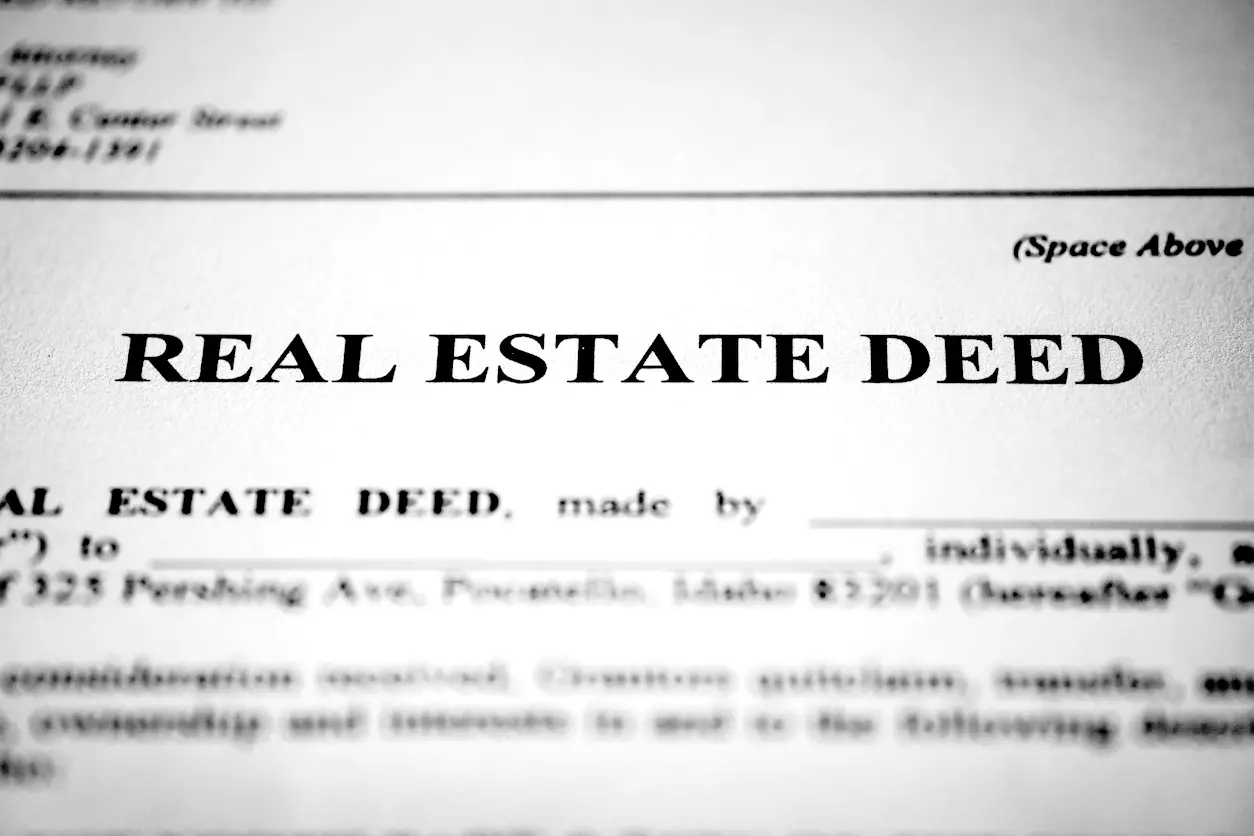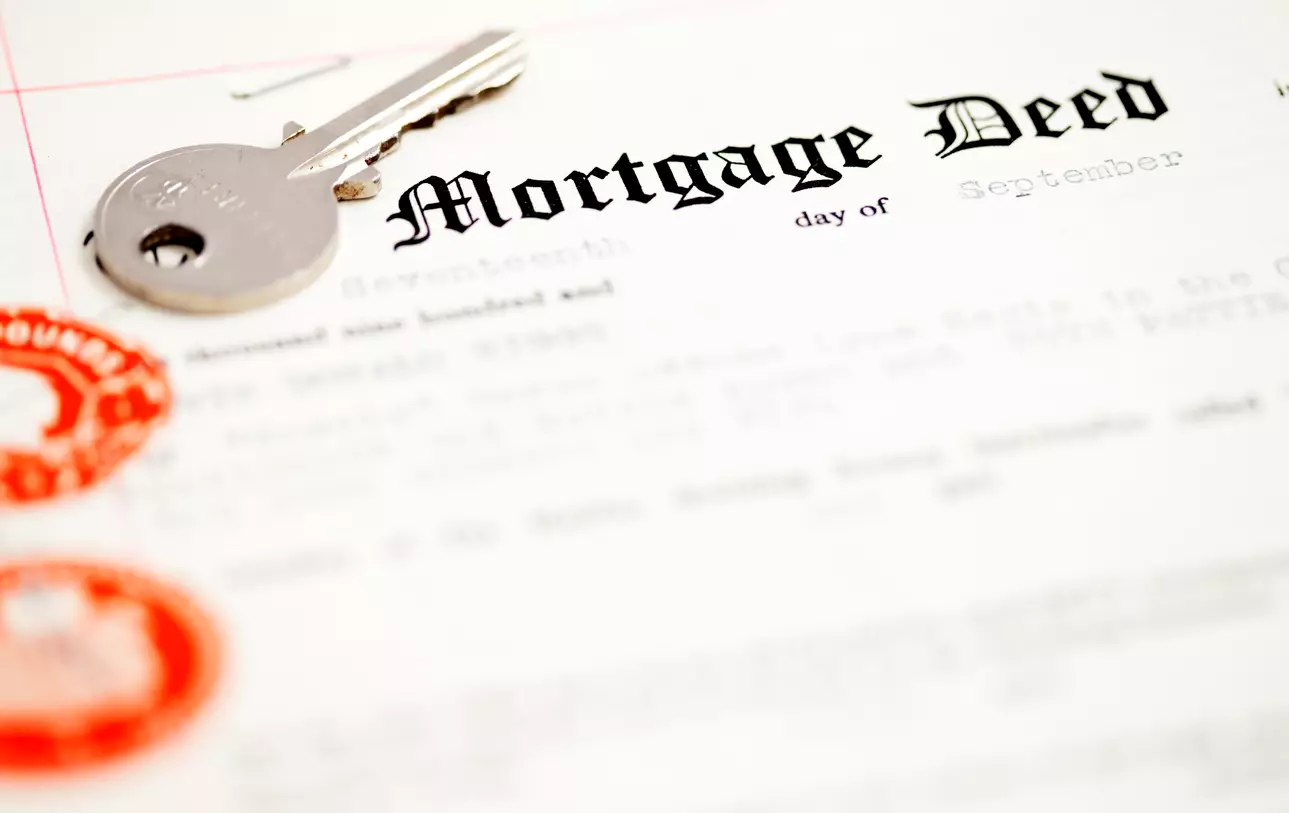Can a Property Owner Block an Easement

Table of Contents
- Can a Property Owner Block an Easement
- What Is an Easement?
- When Can a Property Owner Block an Easement?
- What Happens if You Block an Easement on Your Property?
- Can You Prevent Access to an Easement on Your Property?
- Legal Considerations for Blocking an Easement on Your Property
- Can a Property Owner Change or Block an Easement?
- Mutual Agreement
- Court Decision
- Obsolete Easements
- What Are the Rights of Easement Holders?
- How To Resolve Easement Disputes: What Property Owners Should Know
- Communication and Negotiation
- Mediation
- Litigation
- What To Do if Your Easement Rights Are Blocked
As a landowner, you expect full control over your property—building, developing, and using it as you see fit. However, the reality isn’t always that simple. Others may have legal rights to access or use portions of your land, creating potential conflicts over control and usage.
This is where easements come in. Easements provide legal mechanisms that balance your rights as a property owner with the needs of people in the community. An easement grants individuals, businesses, or government agencies permission to use a portion of your land to ensure accessibility, facilitate essential services, or maintain infrastructure.
Understanding the legal boundaries and obligations tied to easements is critical to prevent conflicts. This article explores when easements can be blocked, the legal repercussions of doing so, and the most effective ways to handle easement disputes.
What Is an Easement?
An easement is a legal right that allows an individual or entity to use, cross, or access a specific part of another’s property for a defined purpose without owning it. The land benefiting from this right is the dominant estate, while the land burdened by it is the servient estate.
For example, a right-of-way easement may permit a property (dominant estate) to utilize a designated path or roadway across a neighboring property (servient estate) for access. Some common types of easements are:
- Utility Easements: This easement gives a utility company the right to access your property to maintain and monitor infrastructure, including water pipes, electrical lines, or telecommunication cables.
- Gross Easements: Gross easements benefit a person or entity rather than a specific property. For example, a company may have the right to place a billboard on your land.
- Easement by Necessity: A landlocked property owner may use your private road if that’s the only way to access their property.
- Prescriptive Easements: Someone may gain legal usage rights to your property, though not ownership, after using it continuously, openly, and without interruption for a certain period specified by law—even without your explicit permission.
When Can a Property Owner Block an Easement?
You cannot typically block an easement established on your property, as it grants others a legal right to use the land. However, there are situations where easement blocking may be justified, such as:
- Abandonment: You can file to terminate an easement if the holder abandons it, meaning they show clear intent to permanently cease its use. However, merely not using the easement isn’t sufficient to establish abandonment.
- Expiration: If an easement is set to end on a specific date or event, you can block it once it expires. Perhaps you're wondering, can a property owner block an easement in Texas? Yes. For example, if a Temporary Construction Easement (TCE) expires after a project is completed, the landowner can stop the company from using their property further.
- Not Legally Created: If the land has never been legally recognized as an easement—whether by deed, prescription, or agreement—you may have the right to revoke its use.
What Happens if You Block an Easement on Your Property?
When you block or obstruct an easement, you may face the following legal consequences:
- Injunctions: If you block or encroach on a legally recognized easement, you may face an injunction. An affected party could obtain a court order compelling you to restore the property to its original condition if modifications you made, such as building structures or planting trees, negatively impact the easement holder.
- Compensation: The benefiting party may claim compensation for damages, inconvenience, or financial loss caused by an obstruction. If you build a shed over a utility easement, preventing a water company from accessing a main line, you could be liable for labor costs, equipment rentals, and demolition. The company may also seek reimbursement for service delays affecting nearby properties.
- Lawsuits: When an easement holder is denied access or use as agreed, they may sue you to enforce their rights. This could result in court-ordered obstruction removal or access restoration, fines, legal fees, and damages.
Can You Prevent Access to an Easement on Your Property?
You can petition the court to restrict or prohibit a dominant estate owner’s easement use if it exceeds its legal scope or intended purpose. For example, if a neighbor has a driveway access easement but begins allowing construction crews to park heavy machinery on it, causing structural damage, this unauthorized use could warrant legal action.
Likewise, if an easement unfairly burdens your property without providing any real benefit to the dominant estate, such as one that lowers your property value, courts may consider its removal.
Legal Considerations for Blocking an Easement on Your Property
You can contest an easement on your property, but the process and outcome depend on its type and circumstances.
Before taking action, determine if you have a valid reason, such as the easement being obsolete because of changes in property use or developments in the area or unduly impacting your property's usage or value. If justified, you can file a lawsuit to modify or terminate it, providing evidence like expert testimony, maps, or historical records.
Easements obtained through eminent domain where the U.S. government takes land for public use under the Fifth Amendment are difficult to block, as they are often necessary for public benefit. However, prescriptive easements are much easier to challenge because they often require strict conditions to be legally established.
Revoking an easement can lead to land use or access disputes, and if you take the issue to court, you may face injunctions, fines, or damages.
Can a Property Owner Change or Block an Easement?
The following are some instances when an easement on your property can be legally modified, relocated, or terminated:
Mutual Agreement
An easement can be modified, relocated, or removed if both you and the benefiting party agree. This requires a signed and notarized document outlining the terms, which must be recorded with the county recorder or land records office to make it legally binding and provide public notice.
Court Decision
A court may approve an easement’s termination, alteration, or relocation when certain legal conditions or requirements are met. For example, under Utah’s Uniform Easement Relocation Act, a servient estate owner may relocate an easement if it does not reduce its usefulness, increase the burden on the easement holder, or otherwise impair its purpose.
Obsolete Easements
You can petition the court if an easement no longer serves its purpose because of changes in the land, neighborhood, or other circumstances.
British Columbia Real Estate Association (BCREA) detailed a case where a waterfront owner abandoned an access easement after securing another route. When the owner later tried to reclaim it, the adjacent property owner argued it was unnecessary.
The court agreed, ruling that since the easement no longer served its purpose, it could be canceled without causing harm to the original holder.
What Are the Rights of Easement Holders?
An easement establishes legal rights for both you and the easement holder. To avoid disputes and ensure its proper use, it’s critical to understand the easement holder’s rights, which include:
- Right to Use the Property An easement holder has the right to use the property according to the easement’s terms. For example, if the easement provides access, the holder can use a specified path or driveway to enter and exit their property. However, this right does not grant ownership of the land.
- Right to Maintenance: The easement holder has the right to maintain the easement area to ensure it remains usable over time. This includes clearing vegetation, repairing driveways, or maintaining utility lines.
- Right to Prevent Interference: The easement holder can prevent property owners from interfering with or obstructing their use of the easement. In Forbes v. Cantwell, the Virginia Court of Appeals upheld the removal of a gate blocking a 40-foot easement but clarified that a gate could be permitted if it served the dominant estate’s use and convenience.
- Right to Transfer: Easement holders can transfer their rights when selling property, especially with appurtenant easements tied to the land. Easements in gross, being more personal, are less likely to be transferable.
How To Resolve Easement Disputes: What Property Owners Should Know
Easement disputes often arise from misunderstandings or disagreements over land use. The easement holder may exceed its intended scope, or you might unknowingly infringe on their rights.

If these conflicts remain unresolved, they could escalate into costly legal battles. While litigation may be necessary in certain situations, there are also practical and amicable approaches you can explore to address the issue.
Communication and Negotiation
Constructive and respectful dialogues can help resolve disputes by allowing both property owners to understand each other's issues and explore potential solutions. Set usage limits, create schedules, or negotiate financial terms, such as maintenance costs, to address problems like overuse or interference.
Mediation
When direct negotiation fails due to emotions or communication barriers, mediation can be an effective approach, especially if you and the other party are willing to compromise and maintain your relationship.
A neutral third party, such as an expert real estate attorney, can facilitate the conversation and guide both sides toward a mutually agreeable solution.
Litigation
While litigation can be expensive and time-consuming, it may be necessary to protect your interests best when other methods fall short. This approach is often required in more complex situations, like unresolved encroachments, where a court’s intervention is needed to clarify or enforce property rights.
What To Do if Your Easement Rights Are Blocked
The following are the available remedies for dominant estate owners facing interference with their easement rights:
- Review Legal Documents: Easement holders should obtain and examine the deed, survey, and relevant title reports to confirm the easement’s existence and exact boundaries.
- Attempt Amicable Resolution: A mutually beneficial solution, such as compensating the property owner for continued access or use or adjusting the easement’s route to reduce disruption, may resolve the conflict.
- File a Case in Court: An injunction can compel the removal of obstructions, and a claim for damages may be pursued if the obstruction has caused harm or financial loss. The easement holder must prove substantial interference, meaning the obstruction significantly impairs the lawful enjoyment of their rights rather than causing minor inconvenience.
Search Property & Deed Records
Table of Contents
- Can a Property Owner Block an Easement
- What Is an Easement?
- When Can a Property Owner Block an Easement?
- What Happens if You Block an Easement on Your Property?
- Can You Prevent Access to an Easement on Your Property?
- Legal Considerations for Blocking an Easement on Your Property
- Can a Property Owner Change or Block an Easement?
- Mutual Agreement
- Court Decision
- Obsolete Easements
- What Are the Rights of Easement Holders?
- How To Resolve Easement Disputes: What Property Owners Should Know
- Communication and Negotiation
- Mediation
- Litigation
- What To Do if Your Easement Rights Are Blocked










